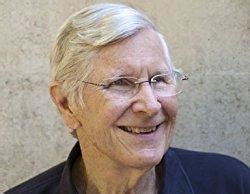A Quote by Ravi Zacharias
Changes in language often reflect the changing values of a culture.
Related Quotes
The language of the culture also reflects the stories of the culture. One word or simple phrasal labels often describe the story adequately enough in what we have termed culturally common stories. To some extent, the stories of a culture are observable by inspecting the vocabulary of that culture. Often entire stories are embodied in one very culture-specific word. The story words unique to a culture reveal cultural differences.
Language changes. If it does not change, like Latin it dies. But we need to be aware that as our language changes, so does our theology change, particularly if we are trying to manipulate language for a specific purpose. That is what is happening with our attempts at inclusive language, which thus far have been inconclusive and unsuccessful.
The foreign audiences are somewhat surprised and happy to find an American film that asks questions about American culture. There's a certain kind of cultural imperialism that we practice. Our films penetrate every market in the world. I have seen and have had people reflect to me, maybe not in so many words or specifically, but I get the subtext of it - they're somewhat charmed and surprised and happy to see an American film reflect on our culture. Because they see other cultures reflect on our culture but they don't see US culture reflecting on itself in quite the same way.


































